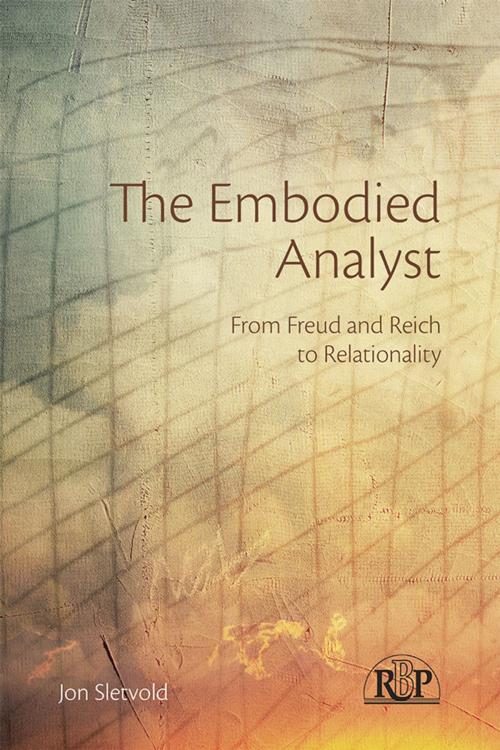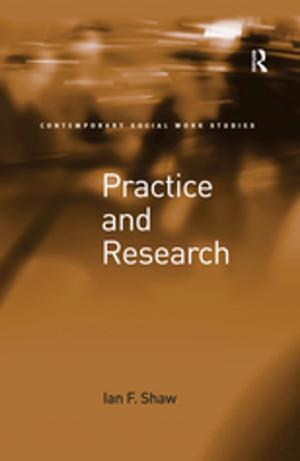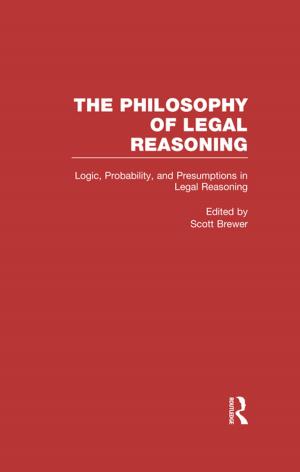The Embodied Analyst
From Freud and Reich to relationality
Nonfiction, Health & Well Being, Psychology, Psychoanalysis, Mental Health| Author: | Jon Sletvold | ISBN: | 9781317859932 |
| Publisher: | Taylor and Francis | Publication: | January 3, 2014 |
| Imprint: | Routledge | Language: | English |
| Author: | Jon Sletvold |
| ISBN: | 9781317859932 |
| Publisher: | Taylor and Francis |
| Publication: | January 3, 2014 |
| Imprint: | Routledge |
| Language: | English |
2015 Gradiva Award Winner
The Embodied Analyst brings together the history of embodied analysis found in the work of Freud and Reich and contemporary relational analysis, particularly as influenced by infant research. By integrating the ‘old’ embodied and the ‘new’ relational traditions, the book contributes to a new clinical perspective focusing on form and process rather than content and structure – the ‘how’, rather than the ‘what’ and the ‘why’. This perspective is characterised by a focus on movement, emotional interaction and the therapists own bodily experience in the analytic encounter.
Jon Sletvold presents a user-friendly approach to embodied experience, providing the history, theory, training and practice of embodied experience and expression as a way of expanding clinical attention. Starting with a Spinozan view of the embodied mind, Part One: History of Embodied Psychoanalysis presents an overview of the history of the field in the works of Freud and Reich as well as a look at the Norwegian Character Analytic tradition . Part Two: Conceptual Framework and Clinical Guidelines explains how clinical interaction can be navigated based on the embodied concepts of subjectivity, intersubjectivity and reflexivity. Part Three: Embodied Training and Supervision presents innovative approaches to training in emotional communication inspired by the performing arts. The book ends with a consideration of the embodied analyst in the 21st century consulting room.
Capturing key aspects of a transitional movement in the development of psychoanalysis and psychotherapy, The Embodied Analyst is ideal for those working and training in psychoanalysis and psychotherapy.
2015 Gradiva Award Winner
The Embodied Analyst brings together the history of embodied analysis found in the work of Freud and Reich and contemporary relational analysis, particularly as influenced by infant research. By integrating the ‘old’ embodied and the ‘new’ relational traditions, the book contributes to a new clinical perspective focusing on form and process rather than content and structure – the ‘how’, rather than the ‘what’ and the ‘why’. This perspective is characterised by a focus on movement, emotional interaction and the therapists own bodily experience in the analytic encounter.
Jon Sletvold presents a user-friendly approach to embodied experience, providing the history, theory, training and practice of embodied experience and expression as a way of expanding clinical attention. Starting with a Spinozan view of the embodied mind, Part One: History of Embodied Psychoanalysis presents an overview of the history of the field in the works of Freud and Reich as well as a look at the Norwegian Character Analytic tradition . Part Two: Conceptual Framework and Clinical Guidelines explains how clinical interaction can be navigated based on the embodied concepts of subjectivity, intersubjectivity and reflexivity. Part Three: Embodied Training and Supervision presents innovative approaches to training in emotional communication inspired by the performing arts. The book ends with a consideration of the embodied analyst in the 21st century consulting room.
Capturing key aspects of a transitional movement in the development of psychoanalysis and psychotherapy, The Embodied Analyst is ideal for those working and training in psychoanalysis and psychotherapy.















